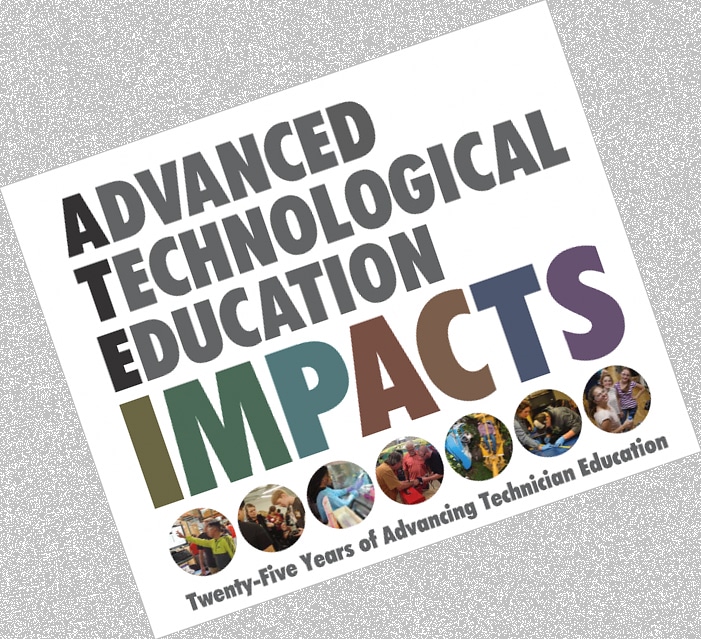The 25th Anniversary of the National Science Foundation’s (NSF) Advanced Technological Education (ATE) program is a reason to celebrate in STEM (Science, Technology, Engineering, and Mathematics) education circles.
For 25 years, the ATE program has invested in and grown technician education opportunities around the nation to prepare a “STEM-capable workforce.” That includes many different types of classes, modules, and certificate programs, in addition to traditional two-year degree programs that are already a strong part of the community college system.
Here are just a few of the statistics:
- $1.1 Billion is the total NSF ATE Investment to date
- 715 organizations have received ATE funding
- 61 ATE Centers and 1,294 Projects have been funded by ATE
- In FY2017, $66 Million Went To 300-plus Active Grants
All of these efforts focus on technician education, across the USA, to help students graduate, but also to help high tech employers in the workforce. Many of the programs highlighted in the annual report called “Impacts” are part of the TEAMM network, which is the sponsor of AM News. Throughout this coming 2018-2019 academic year, we are going to highlight the network member programs as found in Impacts and through direct interviews, when possible.
ATE Impacts explores and reports on seven major categories:
- Advanced Manufacturing Technologies
- Agricultural and Environmental Technologies
- Bio and Chemical Technologies
- Engineering Technologies
- General Advanced Technological Education
- Information and Security Technologies
- Micro and Nanotechnologies
Today we will look at one featured Project and one ATE Center:
Featured Project: AM-WATCH (Additive Manufacturing – Workforce Advancement Training Coalition and Hub)
According to Impacts: “AM-WATCH provides opportunities for secondary school and two-year college students and educators to learn additive manufacturing technologies. More than 700 students were impacted positively by the project from fall 2017 to spring 2018.” It plans to add more locations to its existing 25 learning sites in Tennessee and Washington.
In a recent Train-the-Trainer Studio, educators were taught how to build 3-D printers to help them prepare technicians for additive manufacturing careers. Results found that educators:
- 77% increased their ability to design a system, component, or process
- 80% increased their technical and nontechnical communication skills
- Educators report AM-WATCH’s Train-the-Trainer Studios improved their performance on specific ABET accreditation skill sets
ATE Center: MatEdU – National Resource Center for Materials Technology Education
MatEdU is well-known as a materials technology education repository for educators and students. It appears in the number one spot for search engine results for a wide variety of materials science terms and directs students and educators to useful resources.
Students can learn about a variety of career pathways in materials science. Educators can find content that helps them plan a variety of lessons, entire courses as well as core competencies documents outlining required depth of proficiency for a range of related subjects, such as, manufacturing technology, corrosion technician, nanotechnologist, and more. Instructional resources include course designs, materials videos, and recommended book lists, to name just a few items from the Instructional Resources page.
Each year, MatEdU organizes a Materials in STEM conference (two days) known as M-STEM that attracts educators and students around the country. This year is hosted by the University of Alabama – Birmingham on November 5 and 6.
* * * * *
You can read more about all of the ATE Centers and many of the featured projects by visiting ATE Impacts where you can download the digital edition (PDF) of ATE Impacts 2018-2019.
